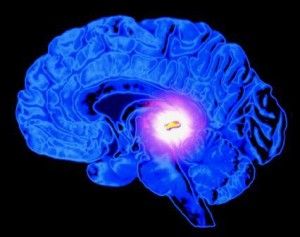A type of hormone which the brain produces via the pineal gland is called melatonin. Mainly it functions in regulating other hormones and controls the body’s circadian rhythm, or the body’s natural wake-up cycle.
The production of melatonin is at its highest during the night when it is dark and lowest during the bright times of the day. It also helps control the timing and release of female reproductive hormones.
Let us discover then more about melatonin as an anti-aging supplement.
Melatonin Uses
The usual use of melatonin includes insomnia and sleep problems that are connected with menopause and benzodiazepine withdrawal. Melatonin may also be advantageous to people with breast and prostate cancer. According to the research made by the University of Maryland Medical Center, men and women who are suffering from breast and prostate cancer have lower levels of melatonin. According to studies, low levels of melatonin stimulate the growth of certain types of breast cancer cells. However, adding melatonin slows down the progression of these cells. When it comes to prostate cancer, experiments show that melatonin can block the growth of prostate cancer cells.

Melatonin and Aging
Melatonin is associated to aging. Children have the highest night time melatonin levels. As we age, melatonin also drops. The levels of growth hormones also drop as we age. Melatonin can momentously stimulate the production of growth hormone according to Vitamin Report Projects. In the experiments conducted with mice, they administered melatonin in dosages of 10 mcg/ml of water. After this, they observed that the lifespan has increased and the older mice began taking on traits of the younger mice. The research has been said to be promising but still there are no studies that support the same anti-aging benefits in humans. These studies are not yet enough and further studies are still needed to determine dosages and long term effects of melatonin.
Side Effects of Melatonin Anti Aging Supplements
Taking melatonin could give you side effects such as day time sleepiness, dizziness, headaches, abdominal discomfort, confusion, sleep walking, and nightmares. One of the effects of taking melatonin is that it may interact with blood thinning medications, immune suppressants, diabetes medications, and birth control pills. Never take melatonin if you are taking sedative medication such as klonopin, lorazepam, and ambien.
Dosing with Melatonin
The right dose remains unclear, and it may also be harmful to take melatonin longer than 2 months. If you are taking melatonin supplements, be careful with day-time activities such as driving. Melatonin supplements that came from animals may contain with viruses or other dangerous contaminants. Before you start taking your melatonin supplement, make sure to talk to your doctor to be sure it is safe for you.
Melatonin is a hormone secreted in the body that claimed to have anti-aging properties. It also helps regulate your sleep cycle. Melatonin levels decrease when you are exposed to the light in the morning. Before taking melatonin supplement to fall asleep, though, you have to spend at least one week to train your body’s sleeping habit. Reading before going to sleep, drinking too much caffeine and not getting too much sunlight can result in sleep difficulty.


